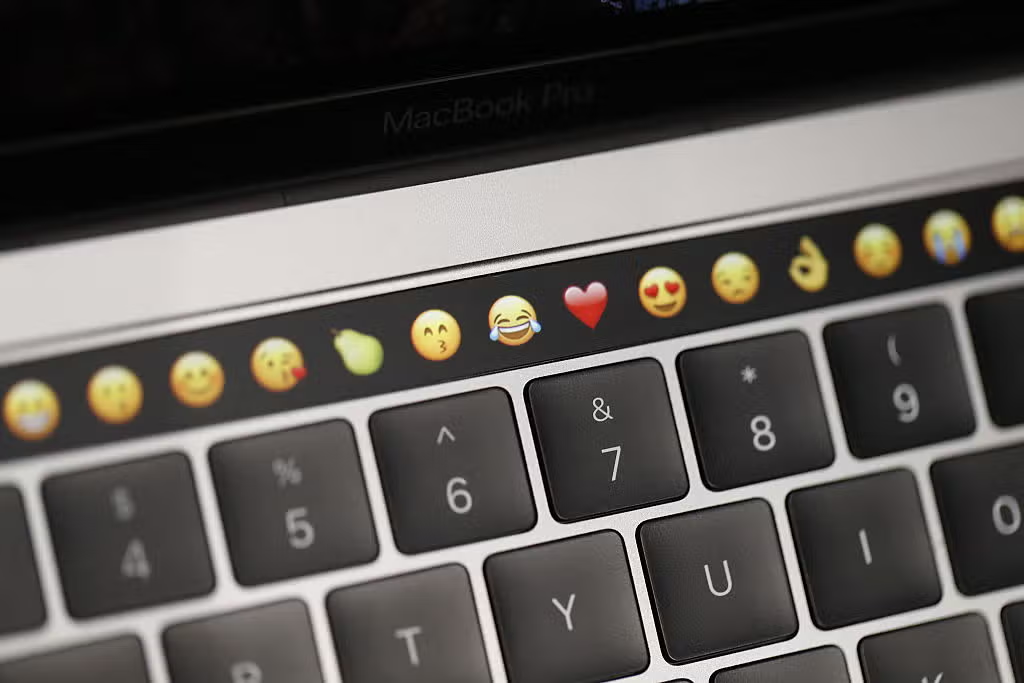An Emoji Was Ruled Legally Binding in Court
Love knows no bounds, and sometimes it finds its unique expression in unexpected ways. For my wife, Danielle, and me, one of our love languages is to engage in full…

Love knows no bounds, and sometimes it finds its unique expression in unexpected ways. For my wife, Danielle, and me, one of our love languages is to engage in full conversations using emoji. I'm certain we're not the only couple who does it, but it still feels like we have a secret code that only we understand, adding a touch of whimsy and intimacy to our connection.
Emojis have become a universal language of their own, allowing us to convey emotions, ideas, and even entire narratives through tiny, colorful characters. While some may view them as mere digital decorations, for us, they are powerful tools that transcend traditional language barriers.
It's fascinating how a simple string of emojis can convey so much. We've developed our own emoji combinations that signify inside jokes, cherished memories, or even future plans. It's like a secret language that only we speak, creating a sense of exclusivity and understanding between us.
What makes our emoji conversations even more special is the element of surprise. We often find ourselves eagerly decoding each other's emoji messages, unveiling hidden meanings and playful nuances. It's a delightful game of interpretation that adds an extra layer of fun to our interactions.
Of course, we still appreciate the beauty of spoken and written words, but there's something whimsical and endearing about our emoji conversations. It's our way of infusing creativity and spontaneity into our daily communication, reminding each other of the lightheartedness and playfulness that brought us together in the first place.
But if you're a fellow enthusiast, here's a cautionary tale for you! In a recent case up north in Canada, emojis have been given some unexpected legal power. Yep, you heard that right, the "thumbs up" emoji just got legitimized in a court ruling.
Here's how it went down:
The Story
A farmer named Chris Achter in Saskatchewan had a little disagreement with a company looking to buy his grain. The story began back in 2021 when a buyer from the company sent out a mass text to several farmers, including Chris, seeking to purchase around 100 tons of grain.
The Emoji That Sealed The Deal
Now, the interesting part came when the buyer had a conversation with Chris and then texted him asking for a confirmation of the contract. In response, Chris simply sent a "thumbs up" emoji. No big deal, right? Wrong.
As fate would have it, things didn't go as planned, and the deal fell through when Chris failed to deliver the grain on time. The company wasn't happy about it, so they took Chris to court.
Chris's Lawyer Tried His Best
During the legal battle, Chris's lawyer argued that emojis can have different interpretations and shouldn't be taken as binding. But guess what? The judge didn't quite see it that way. The judge considered the "thumbs up" emoji as a "non-traditional" but "valid" form of signature. Ouch!
As a result, poor Chris got hit with a hefty bill. He has to cough up over $61,000 in damages, plus interest. Talk about an expensive "thumbs up"!
Yikes
This case is a wake-up call for all of us emoji enthusiasts out there. It's a reminder that even the smallest symbols we use in our digital communications can carry significant weight in legal matters. So next time you're tempted to fire off an emoji, especially in a serious or contractual situation, think twice. The cute little symbols we love can have real-world consequences.
Let this be a lesson to us all: emojis are not just for fun and games anymore. They've officially become part of the legal landscape. So, choose your emojis wisely and consider the potential implications before you hit that send button. Better safe than sorry, right? 😉
Follow Ransom
Listen to Ransom Garcia weekday afternoons from 3 to 7 on 1079 Coyote Country







